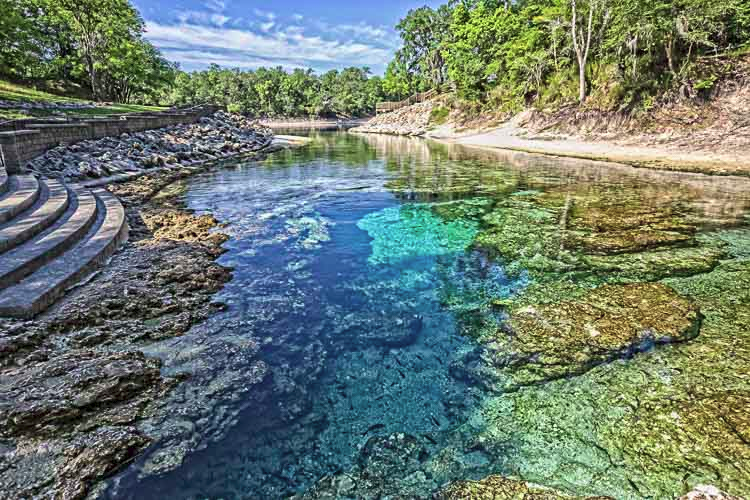Unconstitutional laws are hampering our fight for clean and healthy waters

In response to ineffective actions by elected representatives and state agencies, the Florida Rights of Nature Network is working to amend Florida’s Constitution so citizens can hold state executive agencies accountable for the failure to protect our waterways, including springs, from further pollution and destruction.
This year, the network formed a political committee and registered an initiative called the Florida Right to Clean and Healthy Waters. We have begun to gather the almost 900,000 petitions required to add this amendment to the 2024 ballot.
Initially, we thought we had a great opportunity to make it onto the ballot and win a strong majority of votes, because Florida voters have consistently approved strong environmental protections and funding for environmental projects.
While researching what needs to be robust fundraising for petition gathering, however, I discovered that a new Florida law — Senate Bill 1890: Campaign Financing, approved by the Legislature and signed by Gov. Ron DeSantis in 2021 — restricts donors who support or oppose constitutional amendments from giving more than $3,000 until that amendment has received enough petition signatures to be placed on the ballot. In our case, we need 891,589 petitions.
More Messages from the Springs Heartland:
Why we need the Florida Right to Clean and Healthy Waters Amendment
Once again, money and greed won the day over the environment in Tallahassee
ACT working to save springs by protecting land along Santa Fe, Suwannee rivers
By restricting such donations, the Florida Legislature seeks to actively discourage citizens from participating in political decision-making. For many years, no initiative has made it onto the ballot without paying professional signature collectors to obtain the vast majority of petitions needed to qualify. The only way petition gathering can succeed is through generous gifts to initiative committees.
Further research revealed that the American Civil Liberties Union (ACLU) and three clients for the 2022 election had taken the state to court about this fundraising restriction. A U.S. District Court judge found the law unconstitutional and issued a preliminary injunction blocking the law’s enforcement.
I continued my research and learned from an ACLU staff attorney that, even given the injunction, the law technically still exists and that the injunction applies only to the clients who had challenged the law. The ACLU attorney told me that if the Florida Rights of Nature Network’s political action committee accepted more than $3,000 from one donor, it was unlikely a state attorney would prosecute a case against us since the District Court judge had found the law to be unconstitutional.
The word “unlikely” did not give me confidence. I could see the headlines: “Donor prosecuted for illegal gift to right to clean water initiative.” While we might eventually win in court, the only thing potential donors would remember is that a donor had been prosecuted for giving over $3,000 to our committee.

 Yahoo Autos
Yahoo Autos 